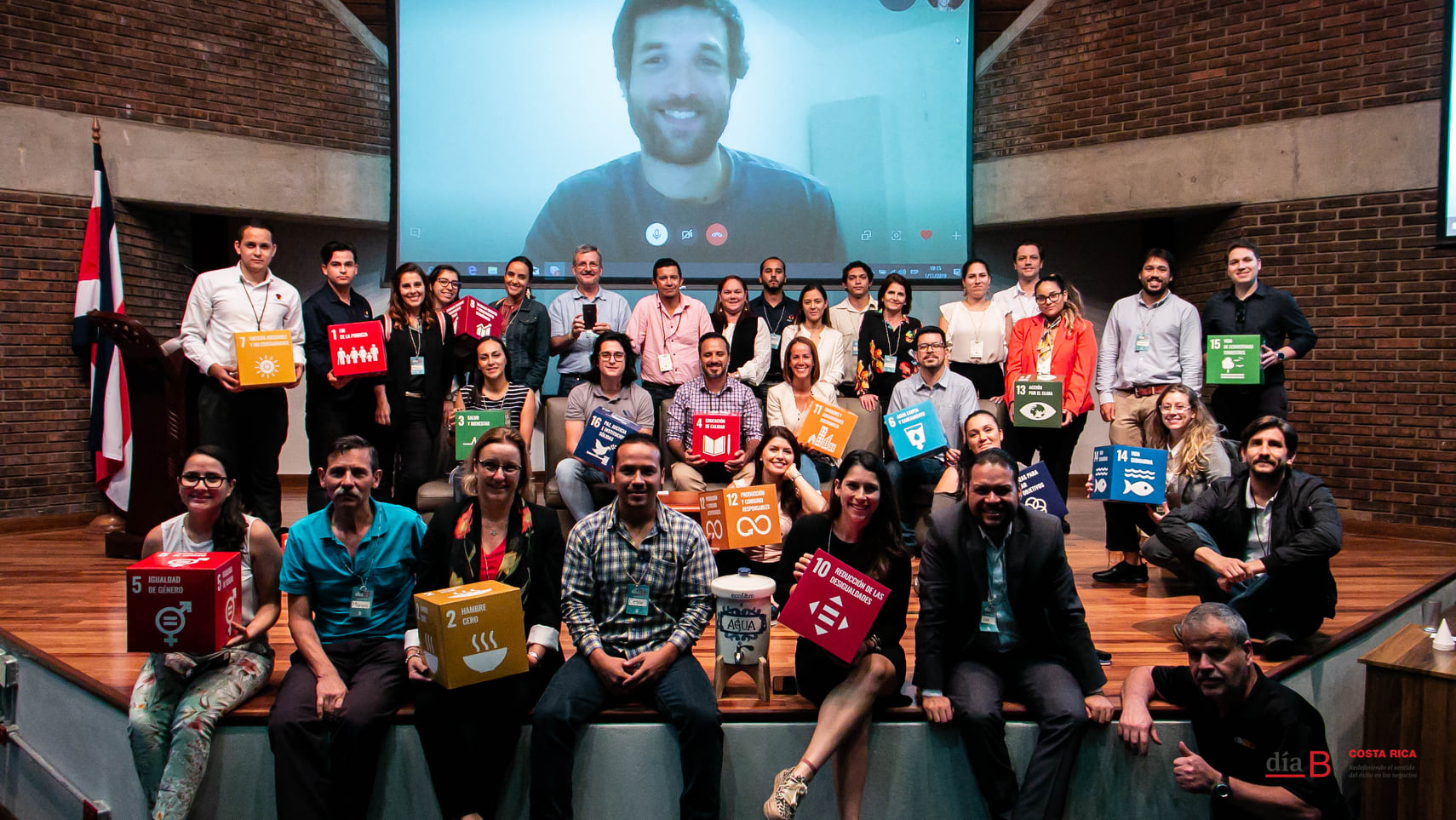Here at El Colectivo 506, we’re celebrating International Women’s Day by working hard to launch our women-led business into a new phase: our path to what we hope will one day become a new identity as a Certified B Corporation.
In this month dedicated to the B Corp Movement in Costa Rica and around the world, we’re exploring plenty of questions about the thousands of businesses around the world that have chosen to “B the Change” by measuring their impact not only in financial terms, but also in terms of their environmental and social impact. Today we’re starting with the most basic one: what’s a Certified B Corporation, anyway? And what are the other key terms we need to master in order to start understanding what it takes to comply with this rigorous certification process?
Certified B Corporations vs. Benefit Corporations
Our March edition is about Certified B Corporations—one of two kinds of “B” entities. The other is the benefit corporation. So what’s the difference?
Essentially, a benefit corporation is an incorporating structure valid in many U.S. states, while a Certified B Corporation is a global certification administered by a nonprofit. While the two can complement each other—becoming a benefit corporation can help a company move towards the governance goals that will help it obtain and maintain B Certification—the standards and processes of each are different.
“Certified B Corporations and benefit corporations are often confused,” the B Lab website explains—but they’re two different animals. The B Lab’s USA and Canada site states that both are “leaders of a global movement to use business as a force for good,” but offers a useful side-by-side comparison of the two figures here.
Benefit Corporations
“An Entrepreneur’s Guide to Certified B Corporations and Benefit Corporations”—a resource co-produced by Yale’s Center for Business and the Environment, and B Movement giant Patagonia—explains that “a Benefit Corporation is an incorporating structure similar to a C-Corp, sole proprietorship, partnership, or LLC. Unlike these other entities, however, a Benefit Corporation must consider the impact of its business decisions on all stakeholders—not just shareholders or members—while creating a material positive impact on society and the environment.”
In addition to Patagonia, an early adopter of this new model after the first states started passing benefit corporation legislation in 2010, other benefit corporations include Klean Kanteen, Allbirds, and King Arthur Flour.
Most countries—and several U.S. states—have not passed benefit corporation legislation. Costa Rica is one of those countries. However, companies around the world can work to become a Certified B Corporations.
Certified B Corporations
B Certification is not a legal structure—it’s a voluntary, global certification administered by the nonprofit B Lab.
A certified B Corps must meet verified standards of social and environmental impact through the B Impact Assessment. They must also “commit to transparency requirements related to their business’ impact and operations, and commit to being legally accountable to all of their stakeholders,” the B Lab website states.
“In order to achieve certification, a company must demonstrate high social and environmental performance by achieving a B Impact Assessment score of 80 or above and passing our risk review…make a legal commitment by changing their corporate governance structure to be accountable to all stakeholders, not just shareholders, and achieve benefit corporation status if available in their jurisdiction… and exhibit transparency by allowing information about their performance measured against B Lab’s standards to be publicly available on their B Corp profile on B Lab’s website.”
Each B Corp must recertify every three years.
B Impact Assessment
This free online tool allows any business to measure itself against the B Lab’s standards in five impact areas: governance, environment, community, customers, and workers. Users create an account and can fill out the whole assessment online, tracking their progress as they go, or download the document as a guide.
Companies can use the tool as a useful assessment that shows areas that should be developed further before seeking B Certification. Once a company is ready for B Lab to review their assessment, they must pay a fee to cover the costs of B Lab review. The fee structure and other requirements for Costa RIcan companies seeking B Certification are outlined here.
B Lab Global Network
This network unites regional organizations around the world that supervise B Certification processes and communities in their geographic areas. The entity that supervises the movement in Costa Rica is the Sistema B, which covers Argentina, Brasil, Central America, Chile, Colombia, Ecuador, Mexico, Paraguay, Peru, and Uruguay.
According to the Sistema B, there are 1,035 Certified B Corporations in Latin America, and 6,453 worldwide.
Pending B Corps (B Pendiente)
To become a Certified B Corporation, a company must have more than 12 months of operations under its belt. The Pending B figure allows startups and small companies to formally signal their intention to become a Certified B Corps before they reach that milestone or have passed other hurdles. These companies incorporate language about stakeholder governance into the legal structure of the startup, take the online B Impact Assessment, and pay a fee to become an official Pending B Corps. This status must be renewed yearly and can expire after a certain period to be defined in each case.





